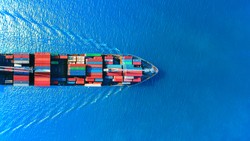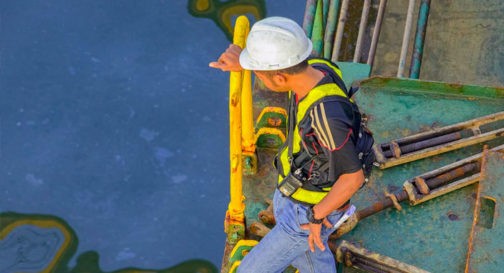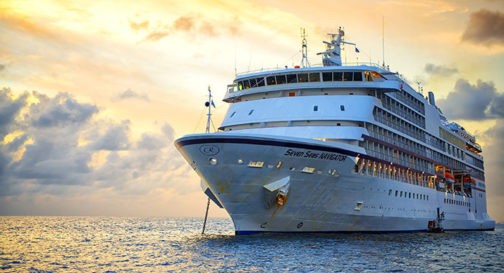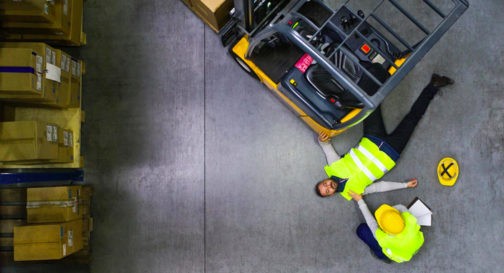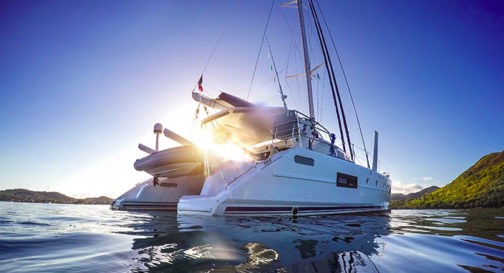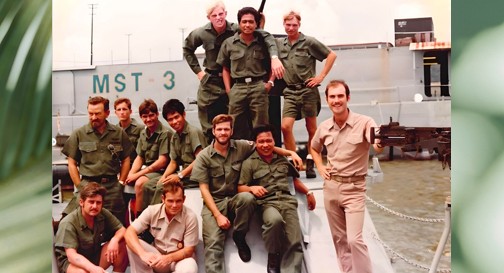Your Complete Guide to the Jones Act
July 15, 2022
In the United States, transportation of goods between two parts of the U.S. is regulated by federal law. Provisions of the Merchant Marine Act of 1920, known as the Jones Act, codified seamen’s rights and also required the development of a domestic maritime industry for shipping of goods between U.S. ports. As a result, the Jones Act has become one of the most important acts in U.S. maritime law. If you are a sailor on a vessel engaged in shipping or trade between parts of the U.S., the Jones Act is one of the most important laws that protects your rights in the event you are hurt on the job. When you have been injured in the course of your duties as a sailor, you should talk to a maritime accident attorney about the possibility of pursuing financial compensation through a Jones Act claim.
What Is the Jones Act?
The Jones Act is the popular name for Section 27 of the Merchant Marine Act of 1920, named for the chief sponsor of the act, Senator Wesley Jones of Washington. The Jones Act regulates coastwise shipping, or shipping between two U.S. ports. Specifically, the Jones Act restricts the kinds of vessels that may engage in coastwise shipping and also establishes the rights of seamen engaged in coastwise trade. Although it has been amended multiple times in its century-plus of existence, the basic provisions of the Jones Act remain relatively intact.
Other statutes that are sometimes mistakenly referred to as the Jones Act include the Passenger Vessel Services Act of 1886, which regulates the transportation of passengers between ports or places in the U.S., and the Longshore and Harbor Workers’ Compensation Act, which provides workers’ compensation coverage to certain maritime workers.
History of the Jones Act
The Jones Act and the rest of the Merchant Marine Act of 1920 were enacted in the wake of World War I for the purpose of growing the domestic maritime industry. The preamble to the Merchant Marine Act of 1920 notes that one of the aims of the act was to have a merchant marine capable of carrying the nation’s domestic maritime trade that could also serve as a naval auxiliary in time of war or national emergency.
Previous statutes adopted by Congress were intended to have similar effects. These laws, found in many other coastal countries, are called cabotage laws. For example, in the first Congress, an act was passed that limited domestic trade to U.S. ships that met certain requirements. These statutes provided certain tax breaks and other financial advantages to U.S. built and crewed vessels when shipping goods between U.S. ports. Early U.S. cabotage laws find their roots in English laws that sought to restrict maritime trade between ports in England and later the U.K.
Contemporary and modern opponents of the Jones Act contend that the statue was meant as a protectionist law to benefit Senator Jones’s constituents in Washington. Because Washington state had a significant shipping industry, the Jones Act effectively gave the state a monopoly on trade between the contiguous United States and the then-territory of Alaska, rather than allowing Canadian shippers to handle trade between the Pacific Northwest and Alaska. Opponents argue that the Jones Act also had the secondary effects of increasing shipping costs for other states and U.S. territories, particularly Puerto Rico.
When Does the Jones Act Apply?
The Jones Act applies whenever cargo is moved on vessels between two points in the U.S. Cargo is deemed moved when it is loaded at a point within the U.S. and then offloaded at another point within the U.S., regardless of the origin or ultimate destination of such cargo. The Jones Act also prohibits transporting between two U.S. points via a foreign point, since non-coastwise-qualified vessels may not conduct any part of the transportation of goods between two U.S. points.
U.S. points include all U.S. states and territories, except for American Samoa and the Northern Mariana Islands, as well as the U.S. Virgin Islands unless the President declares that the Jones Act will apply to the USVI. Points also include the internal waters and territorial waters of the U.S. and the outer continental shelf of the U.S. The Jones Act uses the term “point” rather than port to ensure that it applies regardless of whether cargo is loaded or offloaded in a formal port facility. Under limited circumstances, ineligible vessels under the Jones Act may engage in trade to the U.S. territories of Guam, American Samoa, Wake Island, Midway Island, and Kingman Reef.
Cargo is not considered to be in coastwise transportation if it is taken to an intermediate point outside the U.S., manufactured or processed into a different product, and then transported to another point in the U.S. In addition, coastwide-trade ineligible vessels may travel between two points within the U.S. carrying certain exempted articles, such as empty cargo vans, lift vans, shipping tanks, and stevedoring equipment, provided that such articles are owned or leased by the cargo or stevedoring company and used by them in handling cargo for foreign trade. In addition, non-coastwise vessels may avoid violating the Jones Act if they depart the U.S. with cargo intending to offload it at a foreign port but are denied entry at that port and return to a point in the U.S.
However, non-qualified vessels can seek a waiver of the applicability of the Jones Act. Waiver requests are considered on a case-by-case basis by the U.S. Department of Homeland Security and are usually only granted in the interests of national defense or national security. In practice, waivers are usually granted in response to natural disasters, such as hurricanes, to ensure the continued trade of goods to and from affected areas. Congress also has the authority to grant a waiver by legislative action, such as the waivers granted for America’s Cup competitions to allow foreign competing vessels and support craft to operate in the U.S.
Certain small passenger vessels can also obtain a Jones Act waiver after a notice-and-comment period. These waivers are only available for passenger vessels that are at least three years old, were built or rebuilt outside the U.S., and carry no more than 12 passengers for hire.
Other statutory exceptions to the Jones Act include:
- Transportation of hazardous waste
- Transportation of merchandise between barges owned or leased by the same party, if such treatment is extended to U.S. vessels by the transferring vessels’ countries of registry
- Transportation of goods partially transported over Canadian rail lines or Great Lakes rail routes
- Transportation of goods on the Yukon River, until the Alaska Railroad is completed and becomes available for transportation
- Transportation of goods by Canadian vessels between certain points in Alaska
Cabotage Under the Jones Act
Arguably the biggest effect of the Jones Act is to regulate cabotage, or the transport of goods between two points within the same country, along coastal waters, by a vessel registered in another country. Under the Jones Act, any foreign-owned, foreign-built, or foreign-flagged vessel is prohibited from coastwise trade in the U.S. To engage in coastwise trade, a vessel must be wholly owned by U.S. citizens and must have a certificate of documentation with a coastwise endorsement or be exempt from endorsement while being otherwise eligible.
The U.S. Coast Guard issues documentation to all U.S. commercial vessels. A vessel will receive a certificate of documentation and an official identification number unique to the vessel. The Coast Guard may also issue “endorsements” for a vessel’s certificate of documentation that designate what trade the vessel may engage in. Vessels are required to renew their certificates of documentation annually; an initial application will provide information establishing that the vessel’s owner complies with the requirements for the certificate of documentation and any requested endorsements. Owners may annually certify that they and their vessel continue to meet such requirements; negligently or intentionally falsely certifying continued compliance carries criminal penalties including fines, vessel forfeiture, and even imprisonment.
To obtain a coastwise endorsement, a vessel must be:
- U.S. crewed
- U.S. owned and controlled, and
- U.S. built
Under U.S. law, a vessel is considered U.S. crewed when the vessel’s licensed officers (including the master, chief engineer, radio officer, and deck watch and engineering watch officers) are U.S. citizens. Unlicensed crew may be U.S. citizens, permanent residents, or foreign nationals enrolled in the U.S. Merchant Marine Academy. Permanent residents may not make up more than 25 percent of the total unlicensed crew. However, there are various requirements and exceptions for certain types of vessels, including yachts, large passenger vessels, fishing vessels, offshore supply vessels, offshore drilling and exploration vessels, and riding gang members.
A coastwise endorsement also requires that a vessel be wholly owned by U.S. citizens. Standards for meeting the citizenship requirement include:
- Individuals: Must be a U.S. citizen as defined by the Immigration and Nationality Act
- Corporations (including board-managed LLCs): Must be formed under the laws of the U.S. or a state, have a CEO and chairman who are U.S. citizens, and no more non-citizen directors or board members than make up a minority of the number needed to reach quorum
- Joint ventures and member-managed LLCs: Each member must be a U.S. citizen
- Partnerships: All general partners must be U.S. citizens, with no limitation on the citizenship of limited partners
- Trusts: All trustees and beneficiaries with an enforceable interest must be a U.S. citizen
In addition, any business entity that owns a vessel, along with the entity’s corporate parents, must qualify as a Documentation Act Citizen. At each tier of ownership, at least 75 percent of the equity and voting interest must be actually and beneficially controlled by U.S. citizens. As a result, no means of control representing more than a 25 percent interest may be given to non-citizens. For corporations and LLCs that have multiple classes of stock or ownership interest, the 75 percent requirement applies to each class.
The U.S.-owned requirements may be relaxed in certain circumstances, such as owners of spill response vessels, vessels engaged in a manufacturing or mineral industry, and owners engaged in leasing or financing transactions to coastwise-qualified citizens.
Finally, a coastwise-qualified vessel must have been built in the United States. A vessel is considered to have been built in the U.S. when:
- All major components of the hull and superstructure were fabricated in the U.S., and
- The vessel was entirely assembled in the U.S.
A component is considered “major” when it comprises 1.5 percent or more of the vessel’s steel weight and when it is considered essential to the vessel’s structural integrity and floatation. Raw steel used to manufactured components is not considered “foreign” steel when it is delivered from the mill in an unworked, stock size and all subsequent work is done by a U.S. fabricator or shipyard. Assembly-work does not need to be done in the U.S., provided that the work is not essential to the vessel’s structural integrity or flotation. The U.S. Coast Guard can provide a U.S. Build Letter Determination certifying that the ship qualifies as U.S. built.
A vessel can lose its U.S. built status if it is substantially rebuilt outside the U.S. A vessel may be deemed foreign rebuilt if work constituting 7.5 percent of the vessel’s steel weight (over the life of the vessel) is performed outside the U.S. In addition, the U.S. Customs and Border Protection may impose a 50 percent ad valorem duty on any foreign repair or equipment for a U.S. coastwise qualified vessel. A vessel can also permanently lose its coastwise designation if at any points the entity that owns the vessel fails to meet the requirements of a Documentation Act Citizen (such as appointing a foreign CEO or chairman); however, this can be remedied by having the governing documents of the owning entity expressly requiring U.S. citizenship for officers and directors. Finally, a vessel can permanently lose coastwise status if a noncitizen exercises control of the vessel beyond the time that would be considered reasonable for a charter, or if facts demonstrate a permanent transfer of control of the vessel to a non-citizen.
What Happens When a Non-Qualified Vessel Engages in Coastwise Trade?
If a vessel that does not have a certificate of documentation with a coastwise endorsement (or a waiver from the Jones Act) engages in coastwise trade, U.S. Customs and Border Protection may impose penalties that include seizure and forfeiture of the vessel’s merchandise or a fine equal to the merchandise or charter, whichever is greater. Fines can be imposed on “any person transporting the merchandise or causing the merchandise to be transported.”
To avoid unexpected fines, vessel operators can obtain a ruling of compliance from CBP. A request for a ruling requires providing detailed information regarding the vessel and the proposed transportation. Deviation from any information provided to CBP can result in the ruling being deemed null and void and the vessel’s owner or operator being subjected to fines and penalties
Seamen’s Rights Under the Jones Act
In addition to governing coastwise trade, the Jones Act also expressly protects the rights of seamen serving on U.S. vessels engaged in coastwise trade. Specifically, an injured U.S. seaman can file a legal claim against their employer for injuries they suffered due to the negligence of the vessel’s owner, the vessel’s master or captain, or even fellow crew members. These rights mirror those previously afforded to railroad workers.
In addition, seamen may pursue claims under the Jones Act for injuries that they suffered due to the unseaworthiness of the vessel. A vessel is not considered “unseaworthy” simply because it is sinking. Instead, a vessel may also be deemed unseaworthy when it has unsafe conditions that put seamen at risk for injury, including:
- Broken, poorly maintained, or malfunction equipment
- Leaking grease or oil in workplaces
- Failure to provide crew with proper working equipment or proper safety equipment
- Inadequate training of crew
- Insufficient warning or instruction signs
- Unsafe work methods or operation of the vessel, such as the captain sailing into adverse weather or sea conditions that could have been avoided
- Failure to put dangerous or violent crewmembers off the ship
In addition, to recover under the Jones Act, an injured seaman only needs to prove that their employer’s negligence played any part in causing the seaman’s injuries. Even if another party, such as a fellow crew member, was more responsible for causing the seaman’s injury, they can still hold their employer liable for the losses they suffered due to their injuries.
A worker is considered a “seaman” and therefore entitled to bring a Jones Act claim so long as they spend 30 percent or more of their working time in service on a vessel on navigable waters. Workers who spend less than 30 percent of their time on a vessel are not presumed to be qualifying seamen.
An injured seaman eligible to bring a Jones Act claim may file a lawsuit under the act in either federal court, or in state court under the “savings to suitors” clause under the federal statute authorizing exclusive federal jurisdiction for maritime actions. In addition, the Jones Act affords an injured seaman the right to a jury trial, which is not a right available in most maritime lawsuits.
A Jones Act lawsuit must be filed within three years of the date of their injury, pursuant to the applicable statute of limitations. Filing suit after the statute of limitations has expired may result in a seaman’s lawsuit being dismissed as untimely. In addition, the Jones Act’s statute of limitations often catches injured sailors unaware; this usually occurs when the sailor mistakenly believes they have a Jones Act claim when their claim actually arises under the Public Vessels Act or the Suits in Admiralty Act, which have two-year statutes of limitations.
What Recovery Can an Injured Seaman Obtain Under the Jones Act?
Examples of accidents that can lead to a Jones Act claim include:
- Slip and fall or trip and fall accidents
- Falls from heights
- Chemical exposure
- Burns and other explosion injuries
- Electrocutions
- Repetitive stress and overexertion
- Crush accidents, including from falling objects or being pinned between obligations
- Entanglement in equipment or machinery
- Exposure to weather elements
- Falling overboard
In a Jones Act suit, an injured seaman may be entitled to recover financial compensation for all the expenses and losses that they otherwise might be entitled to recover in a personal injury lawsuit under state law. Financial recovery in a Jones Act claim can include:
- Costs of medical treatment for injuries, including hospital or other inpatient care, surgeries and other invasive medical procedures, prescription medication, purchases of medical and mobility devices and equipment, or rehabilitation services such as physical, occupational, speech, or mental health therapy.
- Long-term care needs, such as renovation costs to install disability accommodations at home, or the costs of long-term rehab/therapy or home health services
- Loss of income due to missing work during recovery from injuries, or due to accepting lower-paying part-time or modified-duty work
- Loss of future earnings when a seaman indefinitely or permanently cannot return to their pre-injury work
- Reimbursement for personal property that may have been damaged or destroyed in the accident that caused the seaman’s injuries
- Physical pain and anguish from injuries and medical recovery
- Emotional trauma and distress, including due to physical scarring/disfigurement or physical/cognitive disability caused by injuries
Contact The Law Offices of Preston Easley Today If You Believe You May Have a Jones Act Case
If you have a Jones Act claim, get the legal representation you need from an experienced maritime accident attorney. Reach out to The Law Offices of Preston Easley for a free, no-obligation consultation to speak with our legal team to learn more about your legal rights and options for obtaining compensation

